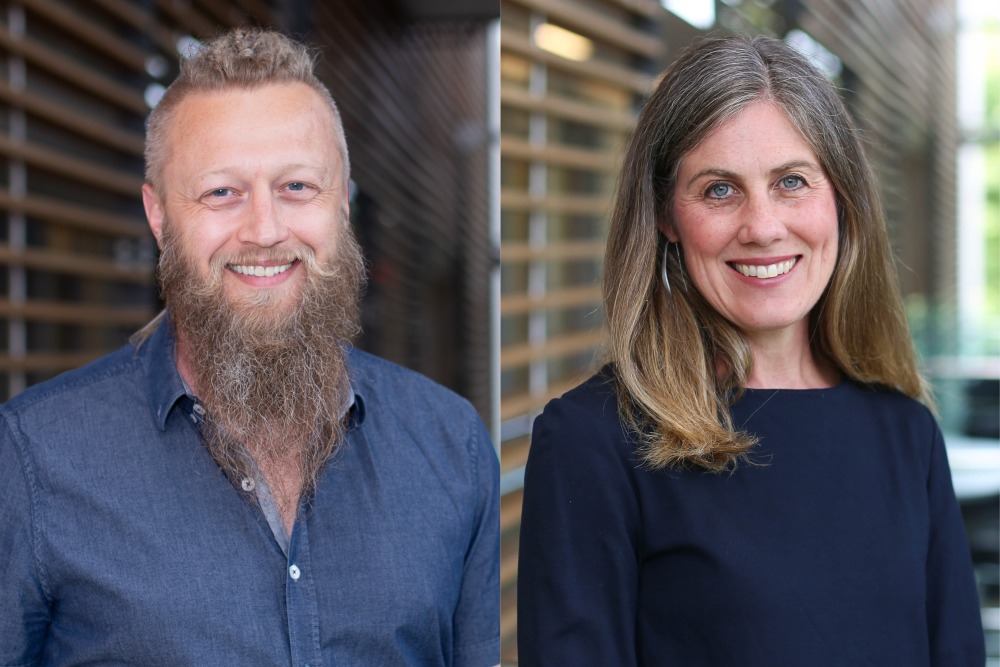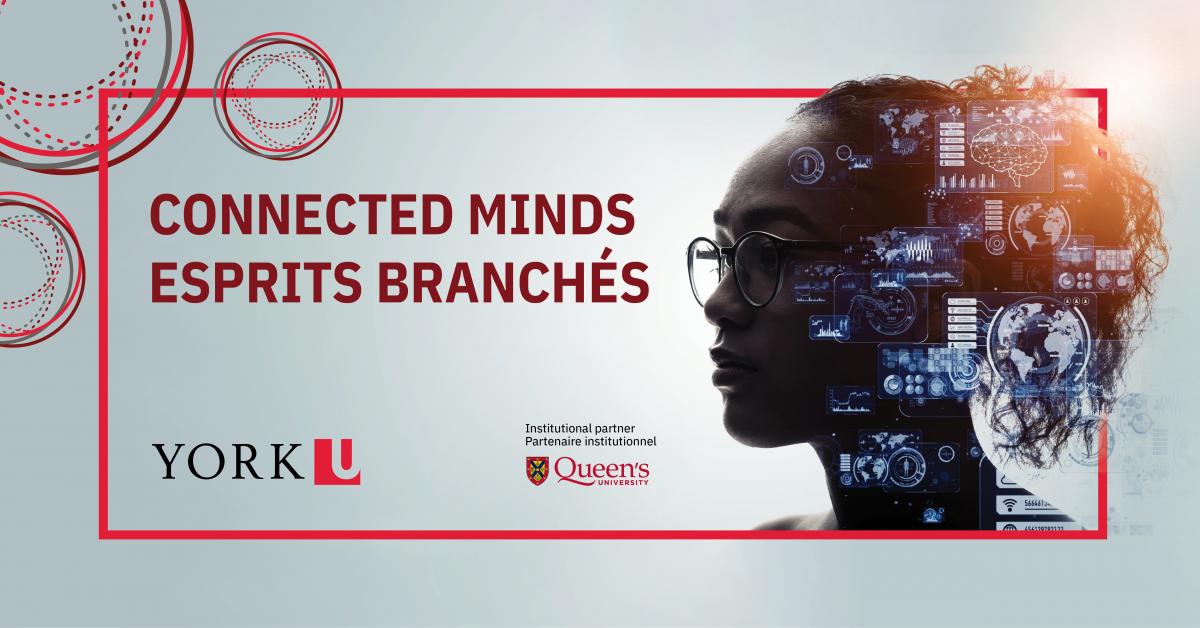
Understanding human-machine connections
New and emerging technologies are changing the way we live and work, and how we interact with each other. While the benefits of AI and disruptive technologies are often touted as life enhancing, there are also risks and questions of access and equity to understand and evaluate.
Today, the Government of Canada has pledged $105.7 million from the Canada First Research Excellence Fund to support a new interdisciplinary research initiative, Connected Minds: Neural and Machine Systems for a Healthy, Just Society, which will assess the potential risks and benefits of technology for humanity. The project is led by York University, who will receive $82.8 million in support, in partnership with Queen’s, whose activities are being supported with $22.8 million of the federal funds. Additionally, with institutional and multi-sector contributions, the seven-year initiative will see an overall investment of $318.4 million to advance these major research questions.
"The Connected Minds project builds on a history of partnership and collaboration between Queen’s and York," says Nancy Ross, Vice-Principal (Research) at Queen’s. "Each institution brings unique but complementary research strengths to bear on the important challenges and opportunities that come with disruptive technologies and their impact on Canadian and global citizens."
Connected Minds brings together researchers across eight faculties at York and three faculties (Health Sciences, Engineering and Applied Sciences, Arts and Science) at Queen’s. The Queen’s research team, includes:
Core team
- Gunnar Blohm, Biomedical and Molecular Sciences, Centre for Neuroscience Studies
- Catherine Donnelly, School of Rehabilitation Therapy
Extended team
- Susan Boehnke, Biomedical and Molecular Sciences, Centre for Neuroscience Studies
- Fernanda De Felice, Biomedical and Molecular Sciences, Centre for Neuroscience Studies
- Ali Etemad, Electrical and Computer Engineering, Ingenuity Labs
- Douglas Munoz, Biomedical and Molecular Sciences, Centre for Neuroscience Studies
- Stephen Scott, Biomedical and Molecular Sciences, Centre for Neuroscience Studies
- Amber Simpson, School of Computing, Biomedical and Molecular Sciences, Centre for Health Innovation
The techno-social collective
Connected Minds identifies that the world is moving to a new social collective comprised of both human and artificial intelligence agents. This "techno-social collective" is reflective of how disruptive technologies are entangled with our daily lives and interactions, bringing extensive benefits but also unknown consequences. The program’s proposed projects include explorations into a more inclusive metaverse, understanding how virtual reality can be leveraged for community organizing, developing neurotechnologies for healthy aging, supporting Indigenous data sovereignty, and understanding how brain function changes when people interact with AI versus other humans. Community-engaged research will be woven throughout these projects as well as an overarching decolonization, equity, diversity, and inclusion (DEDI) strategy.
To tackle these core research questions, Connected Minds will bring together field-leading experts across multiple disciplines. York’s leading expertise in human science, disruptive technologies, and social justice will be paired with Queen’s established strengths in advanced computing, AI, human health, and ethics. For instance, one of the Queen’s teams will study how networks of neurons, people and smart devices interact in order to develop next generation technologies. The Connected Minds project will also engage over fifty community partners and research collaborators, including leaders from industry, health care, and government, and Indigenous community partners.
"York is an international leader in interdisciplinary research involving artificial intelligence and other disruptive technologies, social justice, and human science like neuroscience, philosophy, and psychology. The government’s substantial investment will unite York’s incredible strengths with Queen’s health specialties to chart new territory in socially responsible, community-engaged research for a rapidly changing digital world," says Amir Asif, Vice-President, Research and Innovation at York.
Building research capacity

Queen’s researchers Gunnar Blohm and Catherine Donnelly are members of the core research team for Connected Minds. Dr. Blohm will also act as the project’s Vice-Director.
Connected Minds will also support 35 new faculty hires, including six new Canada Research Chairs and three new Ontario Research Chairs, and 385 positions for graduate students and postdoctoral fellows will be created. While most of these positions will sit at York, Queen’s has committed to hiring nine tenure-track faculty positions and supporting 50 graduate trainees and 27 postdoctoral fellows. These positions will enhance the contributions of the Queen’s Centre for Neuroscience Studies, the Centre for Health Innovation, the Health Services and Policy Research Institute, and Ingenuity Labs Research Institute to the Connected Minds program.
"I look forward to working with our Indigenous, community and industrial partners to develop more equitable and socially responsible research outputs for the benefit of all," says Dr. Gunnar Blohm, Professor in Computational Neuroscience and Queen's Vice-Director of Connected Minds. "I am also excited about the many educational and outreach opportunities that Connected Minds will produce – from school programs to graduate training and professional skills development. We want to democratize education and access to knowledge, with the aim of spreading a new culture of innovation for a more equitable, inclusive, and healthy society."
Visit the website and associated press release for more information on the Connected Minds program and the Canada First Research Excellence Fund announcement.

Note: This article originally appeared in the Queen's Gazette.

